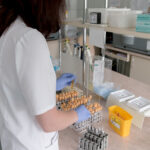Ask The Expert: Is Random Testing Ever Legal?

QUESTION
Is random drug and alcohol testing ever legal’ If so, under what circumstances’
ANSWER
Random drug and alcohol testing, or testing without suspicion, is so privacy-invasive that it’s allowed in only 2 narrow situations:
1. Reasonable Safety Measure
The simple fact that the workplace is dangerous and the worker’s job is safety-sensitive isn’t enough to justify a random testing policy. In a 2013 case called Communications, Energy and Paperworkers Union of Canada, Local 30 v. Irving Pulp & Paper, Limited, the Supreme Court of Canada clarified that the employer must also prove that there’s an actual problem with drug or alcohol abuse in that particular workplace. That’s a standard that few employers have been able to meet; and even in cases where they did, courts still found that the policy’s privacy harms outweighed its safety benefits.
2. Post-Rehab Testing
Random testing of a particular worker, as opposed to a general testing policy covering a group of workers, may be justifiable as part of a last chance agreement for a worker that has previously tested positive. The way it typically works: Instead of termination, the worker agrees to complete rehab and submit to random testing for a specific number of weeks. The worker can then return to work as long as he/she tests clean during the post-rehab period.